On average, job openings receive 250 applications. At that rate, you’ll be sifting through resumes for the next few weeks while your open role remains unfilled and your cost-of-vacancy skyrockets. Enter pre-employment testing.
Using a pre-employment test can significantly cut down on your time-to-fill and improve your quality of hire. By screening candidates with a standardized, objective assessment, you can confidently and quickly weed out those unqualified or unfit for the role.
In this article, we’ll break down the elements of pre-employment tests, including type and format, and recommend a few top-rated assessment services.
See how your employer brand is performing in AI tools like ChatGPT and Google.
Table of Contents
- What Are Pre-employment Tests?
- Things To Know Before Deploying Pre-employment Tests
- Advantages of Using Pre-employment Tests
- Pre-employment Test Formats
- Types of Pre-employment Tests
- Top 10 Pre-employment Tests
What Are Pre-employment Tests?

Pre-employment tests are standardized assessments designed to evaluate candidates, their skills, behaviors and personality. As we’ll cover more in a later section, there are several types of pre-employment tests that can be used to learn more about various aspects of prospective employees.
The results of pre-employment tests are used to determine whether or not a candidate meets the job requirements and has the skills needed to perform well in the role. Pre-employment tests are used during the hiring process to narrow down the candidate pool and determine who will proceed to the next round — usually ahead of an interview. In order to confidently make hiring decisions, pre-employment tests must be efficient and reliable.
Things to know before deploying pre-employment tests

Before we dive further into the advantages and types of pre-employment tests you can use to assess candidates, it’s important to understand the possible legal ramifications of unreliable and discriminatory pre-employment testing.
Pre-employment tests can give way to unconscious bias and violate Equal Employment Opportunity laws. For example, candidates with disabilities may have more difficulty completing physical tests or written assessments and their scores may suffer as a result. However, their challenges with a pre-employment test may not actually interfere with their ability to perform the necessary job duties. Thus, disqualifying them from further consideration may be considered an act of discrimination within a court of law.
It is imperative that any pre-employment test you require of candidates are, first-and-foremost, reliable; factoring scores into your hiring decisions is only fair if the results accurately reflect the individual’s performance. Secondly, they must be relevant. A physical assessment has no place in a hiring process for a data entry position where the employee will be seated for the majority of the day.
Additionally, pre-employment tests cannot ask for information that conflicts with EEO regulations, such as age or disability. Pre-employment tests must also be administered to all candidates of a particular role.
Advantages of Using Pre-employment Tests

When administered correctly, pre-employment tests help employers make informed hiring decisions. Test results are represented as quantifiable data — scores, ratings or categories — that provides an objective, unbiased method of comparing candidates. This serves as an impartial supplement to what the candidate has to say about themselves on their resume or during interviews.
Additionally, using a pre-employment test can save your team members time by reducing the hours they need to commit to the hiring process. Furthermore, a pre-employment test can improve your recruitment process efficiency by making it easier to narrow down your applicant pool faster and eliminate unqualified candidates sooner. Ultimately, this reduces your cost-per-hire, saving you money.
Conducting pre-employment testing improves your quality of hire and reduces turnover. Skills tests ensure the prospective employee is capable of excelling in the role, while personality and culture fit assessments help verify that they’re a suitable addition to the company, too. Pre-employment tests can also be leveraged when promoting from within; use a skills assessment to evaluate a current employee’s qualifications for a managerial or leadership role.
Pre-employment Test Formats

In order to establish a clear, holistic understanding of a potential employee, it’s important to use various evaluation methods. In addition to standardized tests, pre-employment tests can take the form of simulations, demos and presentations, to name a few. In this section, we’ll break down the different formats of pre-employment testing.
Simulations
Creating simulations of potential job duties improves the accuracy and quality of your evaluation. A mock phone conversation can demonstrate the candidate’s fit for a sales role better than they can explain during the interview process.
Demos
To test the candidate’s knowledge of a particular platform of software, consider using a demo during your evaluation. Create a list of instructions or vague objectives, and set up a screen share so you can follow along as the candidate makes their way through the list. If it takes them longer than usual to accomplish specific tasks, you may need to rethink their candidacy.
Research and presentation projects
Assess public speaking skills and industry knowledge through a research and presentation project. This must be done during onsite interviews when candidates have ample time. Provide instructions and specify when they should be prepared to present; they should have at least a couple of hours. The information they include will tell you a lot about their understanding of what’s relevant to the industry and role.
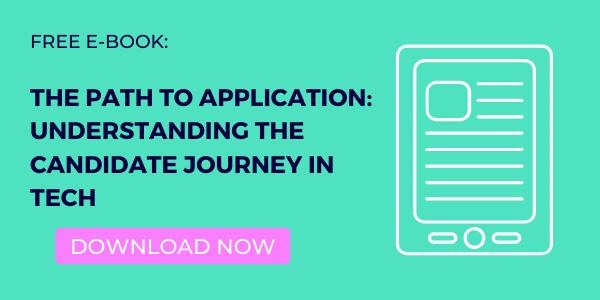
Written or online exam
Exams are useful tools when trying to assess highly technical skills and will only be needed in specific roles as a result. For example, software engineers need extensive knowledge of advanced mathematics, while programmers require programming language expertise. Refer to your job description to determine the appropriate tests. As with software engineers and programmers, there are slight differences between roles that make for significant changes in assessment needs.
Situational assessments
Similar to simulations, situational assessments enable you to evaluate the candidate’s skills and qualifications in real-time. Pose a hypothetical situation that they might encounter in the role and ask the candidate to explain how they would respond. This will also provide insight on their logical reasoning, problem-solving and communication skills.
Types of Pre-employment Tests

In order to decide which type of skill assessment test to administer to candidates, you first need to set your job requirements. This will help you determine which skills are absolutely crucial to the role and which you should evaluate during the hiring process. Your job requirements are dependent on your candidate persona, so figure out who it is you’re looking for, as well as the qualities and skills they possess.
Once you understand the skills and qualities needed to succeed in the role, you can determine the type of test you need. Below are 10 types of pre-employment tests you can use to improve your hiring process.
Cognitive Ability Tests
Also called aptitude tests, cognitive ability assessments evaluate a candidate’s problem-solving skills, logical reasoning and ability to learn and understand new concepts. Rather than evaluating a specific skill, cognitive ability tests assess a candidate’s general intelligence. As with all pre-employment tests, cognitive abilities should be evaluated through multiple formats; some candidates may be highly intelligent but poor test takers.
Soft Skills Tests
Soft skills are an extremely valuable currency among job seekers; the U.S. is currently experiencing a shortage of 1.4 million people with the necessary soft skills. Soft skills are akin to people skills — communication, social intelligence and the ability to work well with others are highly sought after soft skills and are needed in almost every role, regardless of industry. Because it’s hard to be objective when evaluating and discussing subjective qualities between candidates, this type of pre-employment test is very useful.
Hard Skills Tests
Conversely, hard skills or technical skills are typically role-specific. For example, a software engineer would need extensive knowledge of programming languages, while an account executive should be well-versed in successful sales tactics. In short, hard skill tests help hiring managers evaluate the candidate’s ability to perform certain job functions.

Emotional Intelligence Tests
An emotional intelligence test is similar to a personality test or soft skill assessment in that it evaluates a candidate’s ability to interpret their own emotions and the emotions of others. This is a basic skill needed to work in an office and on a team with other employees, but a vital skill in certain roles, such as sales or customer success.
Integrity Tests
Aptly named, integrity tests help recruiters weed out dishonest, unreliable and/or unethical candidates. While you’ll generally be able to suss out false information listed on a resume — for example, a candidate who says they’re fluent in another language but can’t carry out a conversation — integrity tests make it easier to spot concerning character qualities.
The key with these types of assessments is to be somewhat inconspicuous. By asking, “Have you ever published unoriginal work?” it’s very clear what you’re trying to get at and the candidate may lie to continue on to the next round of interviews.
Personality Tests
Personality tests are behavioral assessments that evaluate the candidate’s disposition, role suitability as well as their fit for your company culture. Remember, you don’t want to hire exact replicas of your current employees; culture adds are more valuable than culture fits.
These pre-employment tests can help you identify a candidate’s dominant personality traits by distinguishing between polar characteristics such as extraversion and introversion or creativity and logic. Commonly used personality tests include the Myers-Briggs Personality Type Indicator, DiSC Profile and the Caliper Profile.

Culture Fit Tests
Again, hiring for culture fit is a highly limiting recruitment strategy that will lead to an office of carbon copies. Ultimately, this can cultivate a toxic company culture. However, you still want to hire people that align with your core values and believe in your mission statement. A culture fit assessment allows you to determine whether or not a candidate possesses the specific attitudes and beliefs that will enable them to be a productive member of your team and office.
Physical Ability Tests
Physical ability tests are straight-forward — use them to assess candidate’s physical capabilities for roles that require manual labor or are physically demanding. However, be careful not to discriminate against candidates with physical disabilities and ask for personal information that infringes on EEO regulations.
Language Tests
For roles that require employees to be fluent in one or more languages, use a language test to assess their skills. Consider administering both written and oral exams to determine if they have any limitations. You can also conduct interviews in different languages to assess speaking skills.
Drug Tests
Drug tests are commonly administered after a candidate has accepted a job offer and prior to their start date, or as a contingency to an offer. Employers can choose to screen prospective employees for drug usage, but be aware that drug testing laws vary by state and can stipulate when and how screenings are conducted.
Top 10 Pre-employment Tests

To make your hiring decision process easier, we’ve rounded up 10 of the best pre-employment testing services on the market based on ratings from the world's largest B2B marketplace, G2 and software comparison site, Capterra. All ratings are on a scale of five. Note that physical ability and drug tests are not featured below as they must be conducted in-person.
WonScore
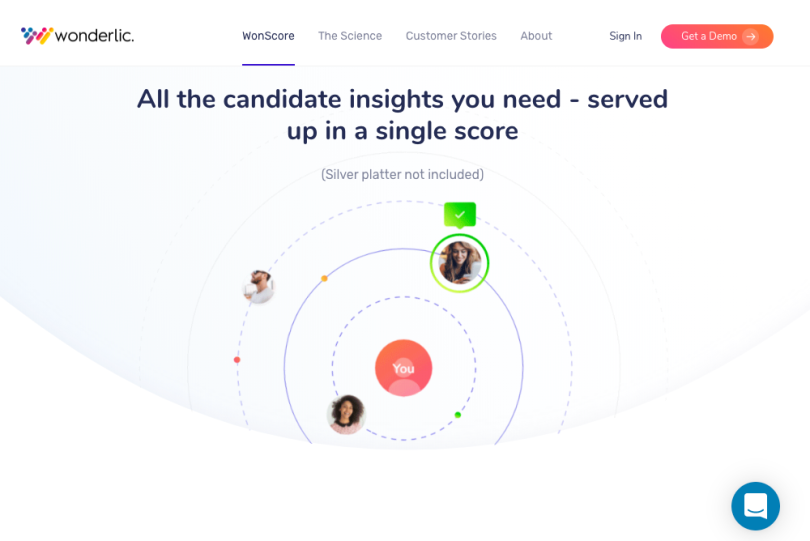
WonScore from Wonderlic has completely simplified pre-employment testing. Through three separate cognitive ability, motivation and personality assessments, Wonscore aggregates results into one score — hence, the name. The platform will then stack-rank applicants in descending order so you can focus on and compare top performers.
Testing Type: Cognitive ability; personality
G2 Crowd Rating: 4.3 (71 reviews)
Capterra Rating: 4.5 (148 reviews)
eSkill
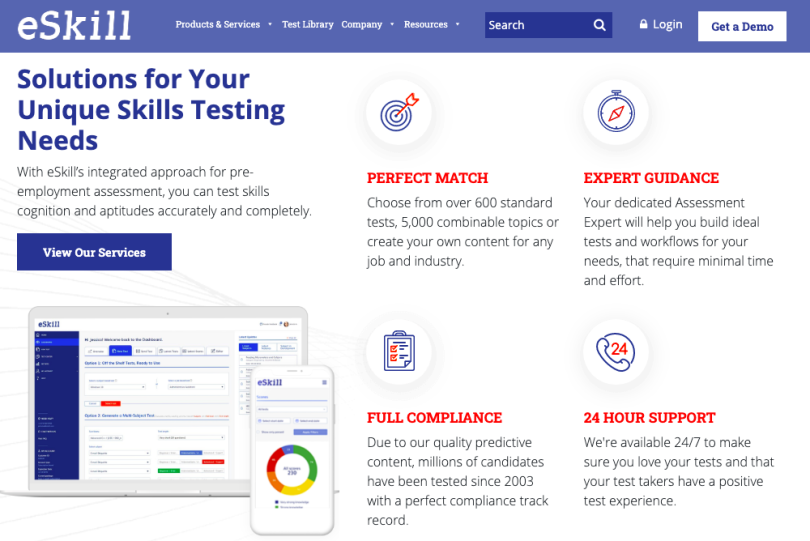
With a library of over 800 standard job-based and subject-based tests, eSkill makes it easy to assess candidates’ qualifications. You can customize test questions, as well as your test portal so it adheres to your employer brand guidelines. eSkill also integrates with popular HR systems so you can export data into your primary platform.
Testing Type: Soft skills; hard skills
G2 Crowd Rating: 4.3 (87 reviews)
Capterra Rating: 4.5 (87 reviews)
HireSelect
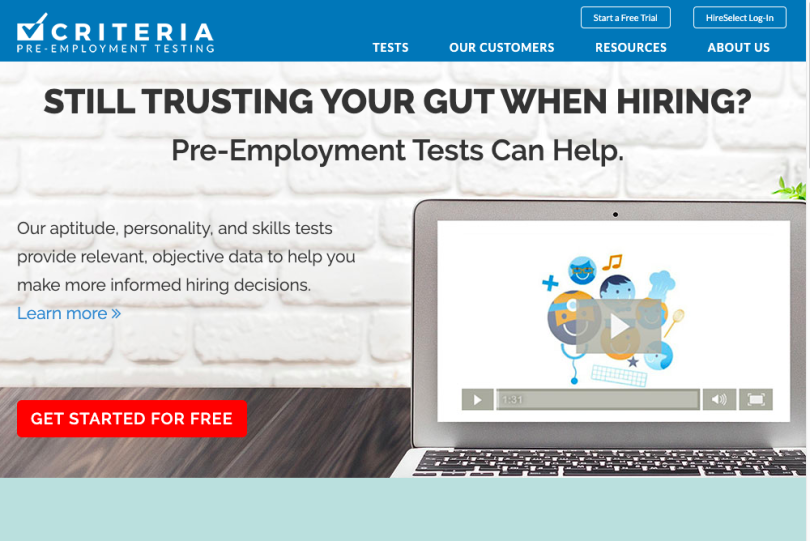
HireSelect by Criteria Corp is used by employers across multiple industries. It provides customizable test batteries for over 1,100 positions. With aptitude, personality and skill assessments, HireSelect is a one-stop-shop for pre-employment tests.
Testing Type: Cognitive ability; personality; soft skills; hard skills
G2 Crowd Rating: 4.3 (32 reviews)
Capterra Rating: 4.8 (45 reviews)
Interview Mocha
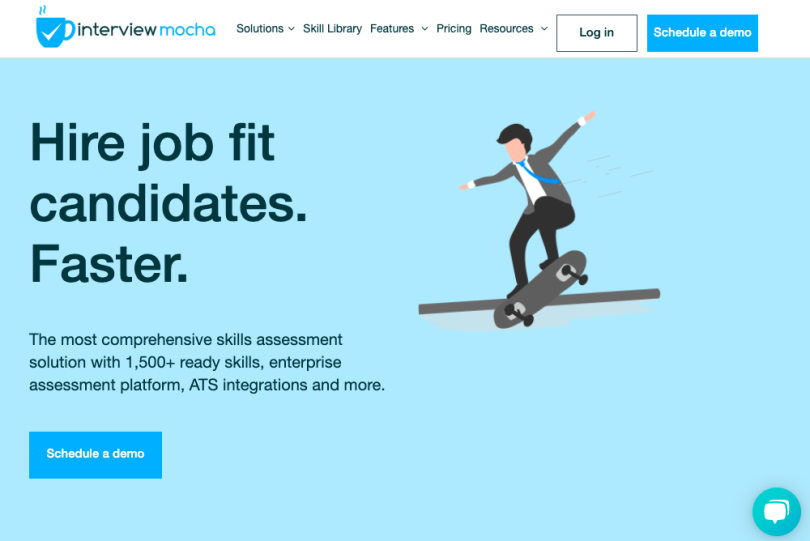
Interview Mocha has the largest pre-employment testing library, offering 1,500+ assessments that evaluate both hard and soft skills, as well as language fluency and aptitude. It also offers one-click integration with applicant tracking systems, so you can stay organized with all of your candidate information in one place.
Testing Type: Cognitive ability; soft skills; hard skills; language
G2 Crowd Rating: 4.9 (45 reviews)
Capterra Rating: 4.6 (26 reviews)
The Hire Talent
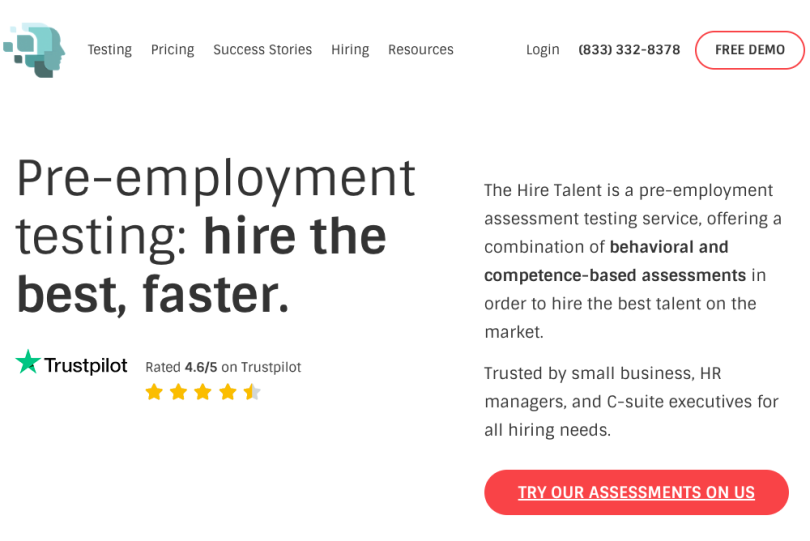
The Hire Talent offers personality, skill and aptitude assessments to improve recruiters' understanding of prospective employees. Within its behavioral assessments, The Hire Talent also evaluates integrity, making it a comprehensive solution for pre-employment testing.
Testing Type: Personality; soft skills; hard skills; integrity; cognitive ability
G2 Crowd Rating: Not yet rated
Capterra Rating: 4.6 (59 reviews)
HR Avatar

With a user-friendly test catalog, it’s easy to find the perfect pre-employment test for your job search on HR Avatar. And with hundreds of tests covering a variety of skills and attributes, you can paint a comprehensive picture of your candidate’s potential.
Testing Type: Cognitive ability; hard skills; personality; emotional intelligence
G2 Crowd Rating: Not yet rated
Capterra Rating: 4.6 (65 reviews)
Plum
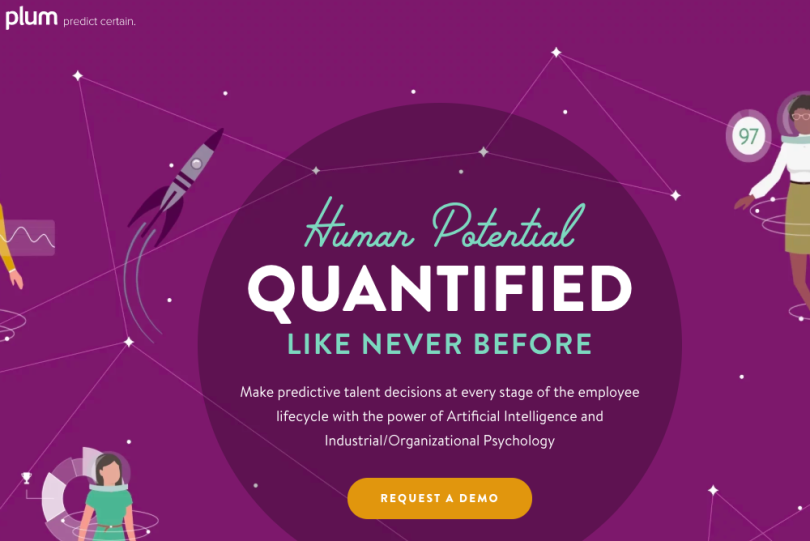
Plum improves the hiring process before you even get your first applicant. The brief Match Criteria Survey forces hiring teams to align on key qualities and qualifications candidates must have. From there, Plum’s Discovery Survey measures applicant’s personality and cognitive abilities to determine their fit for the role.
Testing Type: Cognitive ability; personality
G2 Crowd Rating: 4.4 (55 reviews)
Capterra Rating: 4.7 (19 reviews)
Skeeled

The team behind Skeeled prides itself on creating a great candidate experience from start to finish. With automations to streamline the first steps of the recruitment process, an automated ATS, video interview tool and pre-employment assessments, Skeeled is a complete recruitment tool.
Testing Type: Personality; culture fit
G2 Crowd Rating: 4.3 (16 reviews)
Capterra Rating: 4.5 (26 reviews)
Coderbyte for Employers
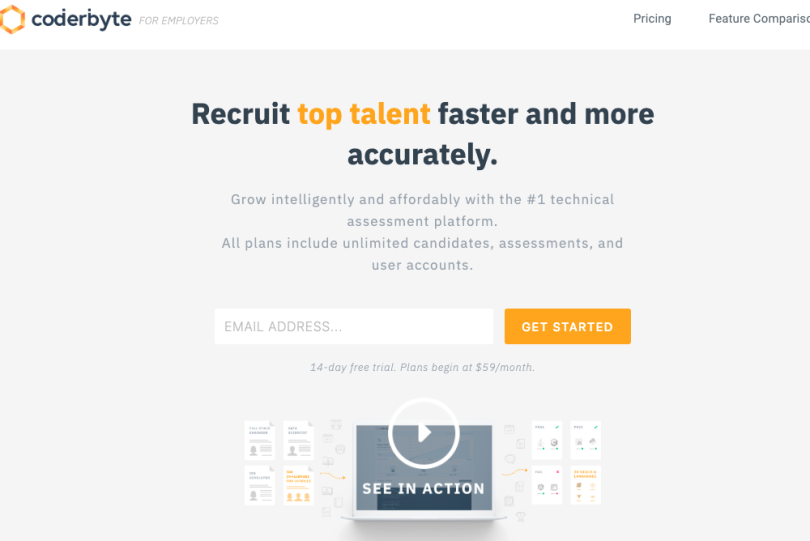
Coderbyte for Employers is a comprehensive technical assessment platform for tech recruiters. Whether you’re hiring a software engineer or developer, Coderbyte has complete assessments and challenges to screen candidates for programming language proficiency and skills. Coderbyte integrates with your ATS, so you can store pre-employment test scores alongside other essential candidate information.
Testing Type: Hard skills
G2 Crowd Rating: 4.2 (13 reviews)
Capterra Rating: 4.4 (16 reviews)
Berke
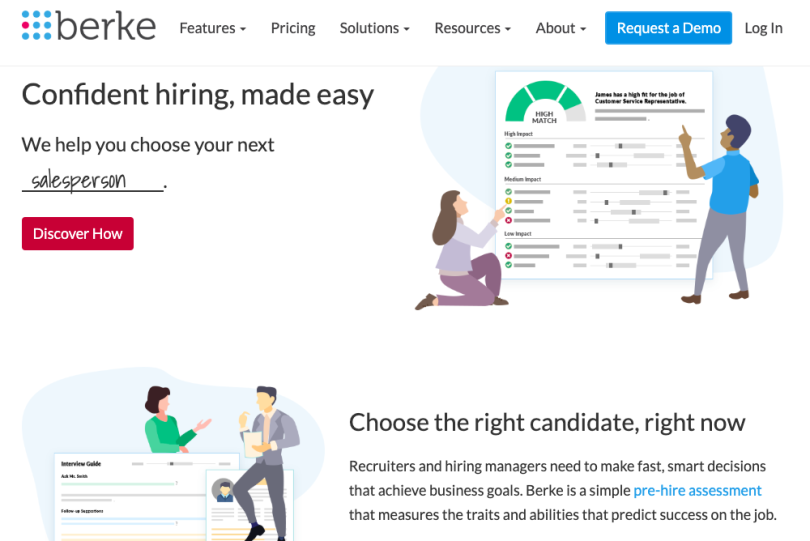
Berke pre-employment assessments are used by over 700 employers to measure candidate motivations and abilities. Berke evaluates aptitude and seven key personality traits to determine candidate fit, which is then labeled high, medium or low fit. The platform backs its fit labels up with data you can trust.
Testing Type: Cognitive ability; personality
G2 Crowd Rating: 4.8 (55 reviews)
Capterra Rating: 4.9 (12 reviews)
Ensuring that every candidate is given a fair and adequate assessment is vital to creating a top-shelf candidate experience. However, you don’t have all the time in the world to talk through qualifications and assess fit. Using a pre-employment test can save money, improve the accuracy of your evaluation and get the right person in the door. Again, verify that your pre-employment test fully complies with EEOC regulations beforehand.





